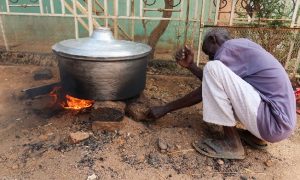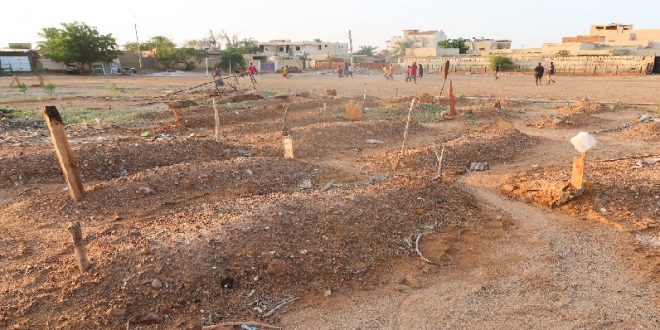16-11-2024
CAIRO/ OMDURMAN: More than 61,000 people are estimated to have died in Khartoum state during the first 14 months of Sudan’s war, with evidence suggesting the toll from the devastating conflict is significantly higher than previously recorded, according to a new report by researchers in Britain and Sudan.
The estimate includes some 26,000 people who suffered violent deaths, a higher figure than one currently used by the United Nations for the entire country.
 The preprint study by the London School of Hygiene and Tropical Medicine’s Sudan Research Group, released on Wednesday before peer review, suggested that starvation and disease are increasingly becoming the leading causes of death reported across Sudan.
The preprint study by the London School of Hygiene and Tropical Medicine’s Sudan Research Group, released on Wednesday before peer review, suggested that starvation and disease are increasingly becoming the leading causes of death reported across Sudan.
The estimated deaths from all causes in Khartoum state were at a rate 50% higher than the national average before the conflict between the army and paramilitary Rapid Support Forces erupted in April 2023, researchers said.
The U.N. says the conflict has driven 11 million people from their homes and unleashed the world’s biggest hunger crisis. Nearly 25 million people – half of Sudan’s population need aid as famine has taken hold in at least one displacement camp but counting the dead has been challenging.
Even in peace time, many deaths are not registered in Sudan, researchers say. As fighting intensified, people were cut off from places that record deaths, including hospitals, morgues and cemeteries. Repeated disruptions to internet services and telecommunications left millions unable to contact the outside world.
The study “tried to capture that invisibility” using a sampling technique known as “capture-recapture”, said lead author Maysoon Dahab, an infectious disease epidemiologist and co-director of the Sudan Research Group.
Originally designed for ecological research, the technique has been used in published studies to estimate the number of people killed during pro-democracy protests in Sudan in 2019 and the COVID-19 pandemic, when it was not possible to carry out full counts, she said.
Using data from at least two independent sources, researchers look for individuals who appear on multiple lists.  The less overlap there is between the lists, the higher the chances that deaths have gone unrecorded, information that can be used to estimate the full number of deaths.
The less overlap there is between the lists, the higher the chances that deaths have gone unrecorded, information that can be used to estimate the full number of deaths.
In this case, researchers compiled three lists of the dead.
One was based on a public survey circulated via social media platforms between November 2023 and June 2024. The second used community activists and other “study ambassadors” to distribute the survey privately within their networks. And the third was compiled from obituaries posted on social media, a common practice in the cities of Khartoum, Omdurman and Bahri, which together make up the greater capital.
Deaths captured in the three lists made up just 5% of the estimated total for Khartoum state and 7% of those attributed to “intentional injury”. The findings suggest that other war-affected parts of the country could have experienced similar or worse tolls, the study said.
The researchers noted that their estimate of violent deaths in Khartoum state surpassed the 20,178 killings recorded across the country over the same period by the Armed Conflict Location & Event Data project (ACLED), a US-based crisis monitoring group.
ACLED’s data, which is based on reports from sources including news organizations, human rights groups and local authorities, has been cited by UN officials and other humanitarian workers. (Int’l News Desk)
 Pressmediaofindia
Pressmediaofindia




